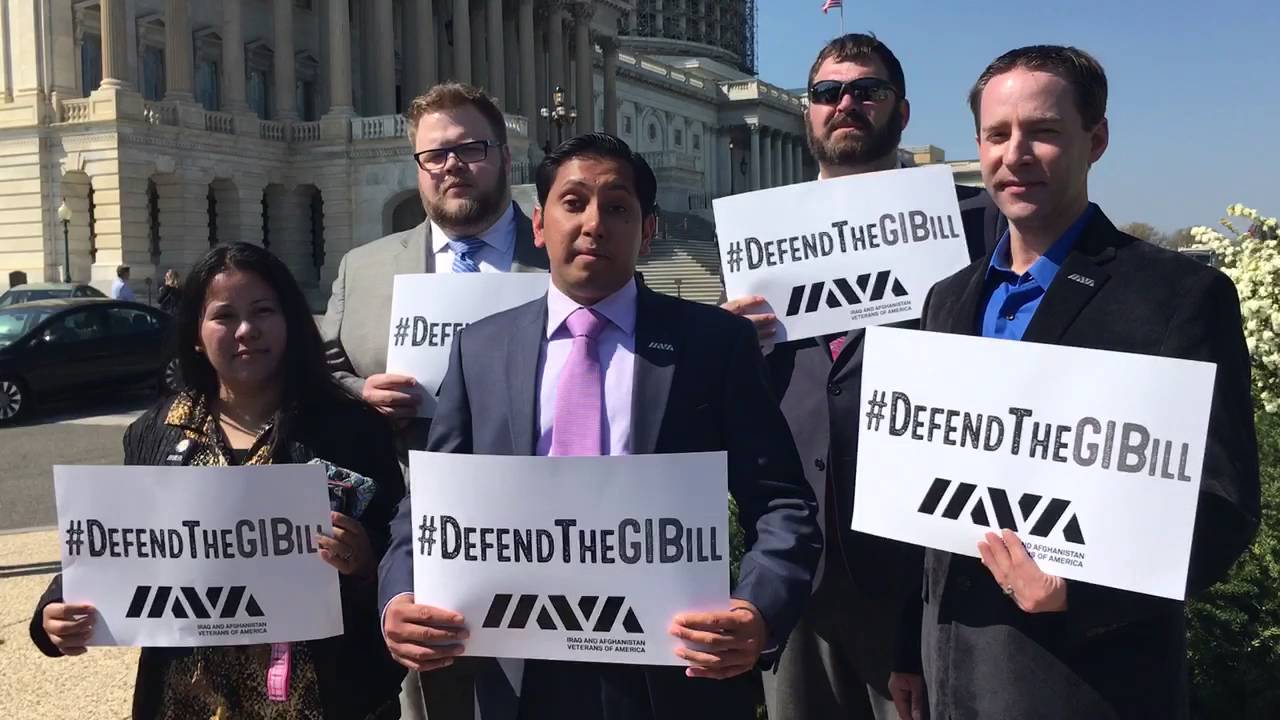IAVA | February 5, 2019
Read: When Post 9/11 GI Bill Transferability Goes Wrong

Post-9/11 GI Bill allows career service members the opportunity to share their education benefits with immediate family members. Roughly 928,000 spouses and dependents have used the Post-9/11 GI Bill to attend schools in the first five years the benefit was offered. While the majority were able to transfer successfully, when something went wrong, it had catastrophic impact on the affected family’s financial life. So far, RRRP has worked at least 40 cases involving failed/revoked transfer of education benefits. Each of these failed transfers resulted in upwards of $30,000 to $60,000 debts, predominantly for veteran’s dependents.
Additionally, GI Bill transferability is considered as a retention tool. RRRP clients who have had issues with transfers report that their retention NCO’s did not provide clear guidance regarding the process and its completion. Furthermore, as it stands, we are asking retirement eligible service members to continue serving for 4 additional years. This rule, as applied, is making those who have dedicated their lives to serving this nation, serve more. As of June 20th 2019, those with over 16 years of service will no longer be eligible to transfer. I find this extremely problematic as well because many of these service members are in their early 30’s and, by in large due to demands of serving in a largely forward deployed military force have not started a family yet.
In 2016, I worked with a retired NAVY SEAL whose family was impacted by the failed Post 9/11 GI Bill transferability. Unbeknownst to the veteran he missed his “obligation end date” by 2 months when he retired. When it was time for his oldest daughter to attend college the family requested a Certificate of Eligibility (COE) for the Post 9/11 GI Bill from the VA – which they promptly received and submitted to the School Certifying Official (SCO), who then approved the child to use the benefit. This student successfully attended 3 semesters until the DOD identified the problem and contacted the VA to reverse the transfer of this benefit. When applying for the 4th semester, the SCO notified the student that she was no longer eligible. Shortly after the family received a letter stating that due to the veteran not satisfying his “obligation end date” the benefit was being returned in full to the veteran. His oldest daughter received a different letter notifying her that she was indebted to the VA for $36,000. Additionally, the family relying on this benefit made a number of financial decisions during the time their oldest daughter was attending school and was significantly negatively impacted. As this particular case illustrates, erroneously approved and later revoked transfer of this education benefit can have a major negative impact on a veteran family’s financial stability, but also jeopardizes their dependents financial future.
Often, military families make significant financial decisions relying on successful transfer of this benefit. When it gets revoked, typically years after the recipient family member is deemed eligible and uses it, these families go through severe financial hardships trying to rectify the situation. This debt is also notoriously difficult to address. DOD and VA’s stance is simple: you did not meet your “obligation end date” and despite prior issuance of the Certificate of Eligibility (COE) you were not eligible to transfer and your spouse or child was granted access in error. There is no significant recourse for the family and they are left on the hook. This is appalling, disgraceful and completely unacceptable.
RRRP continues to receive GI Bill transferability inquiries from veterans and service members. Some are still serving on active duty and need further guidance that they are not receiving at the unit level. Others have separated and are seeking additional information because they were not properly briefed. RRRP is here and is ready to help veterans navigate, troubleshoot and access the education benefits they’ve earned. Yet, failed transferability cases will remain some of the most heartbreaking, preventable and difficult to resolve.
If you or a veteran you know needs assistance with VA education benefits, reach out to RRRP today.






